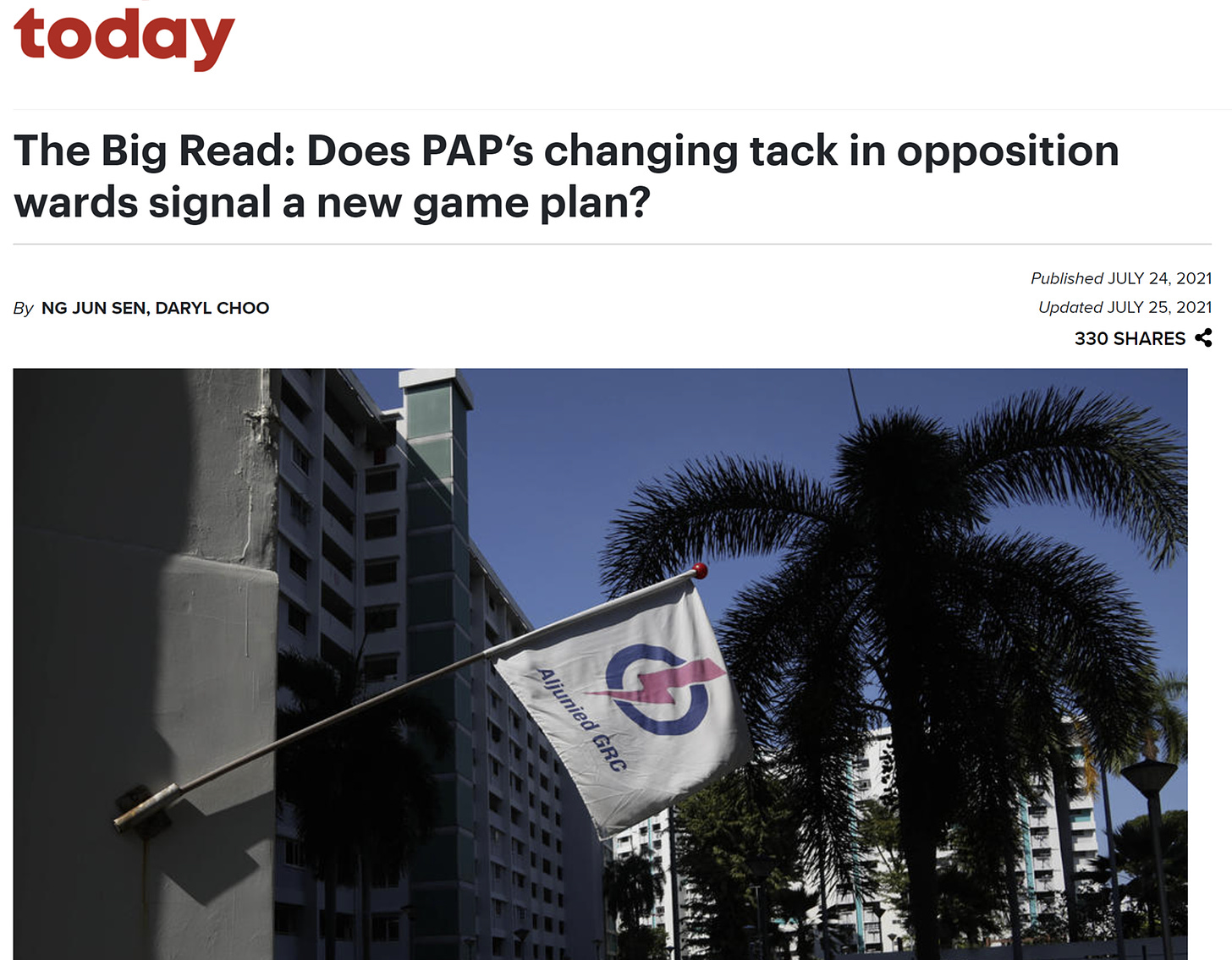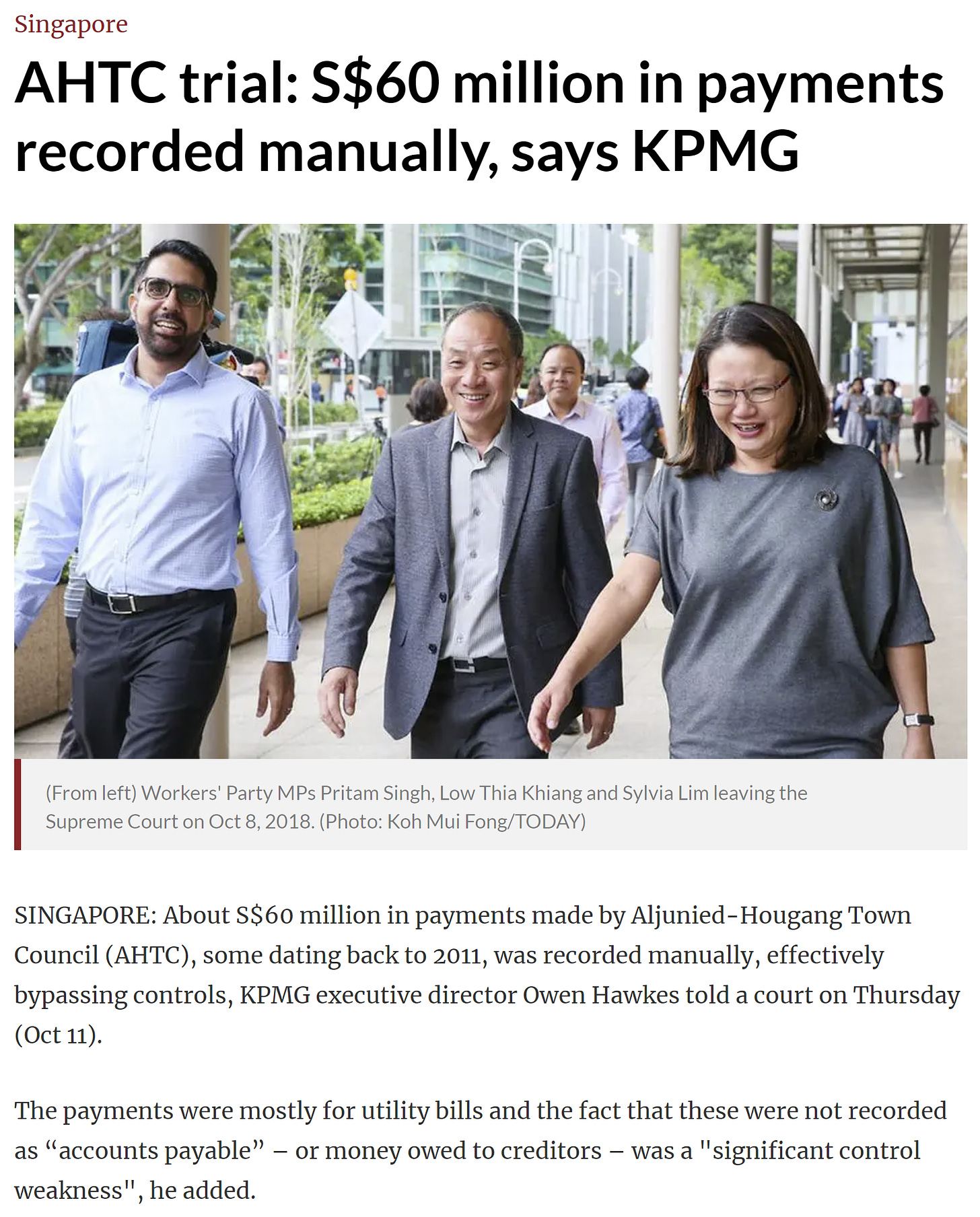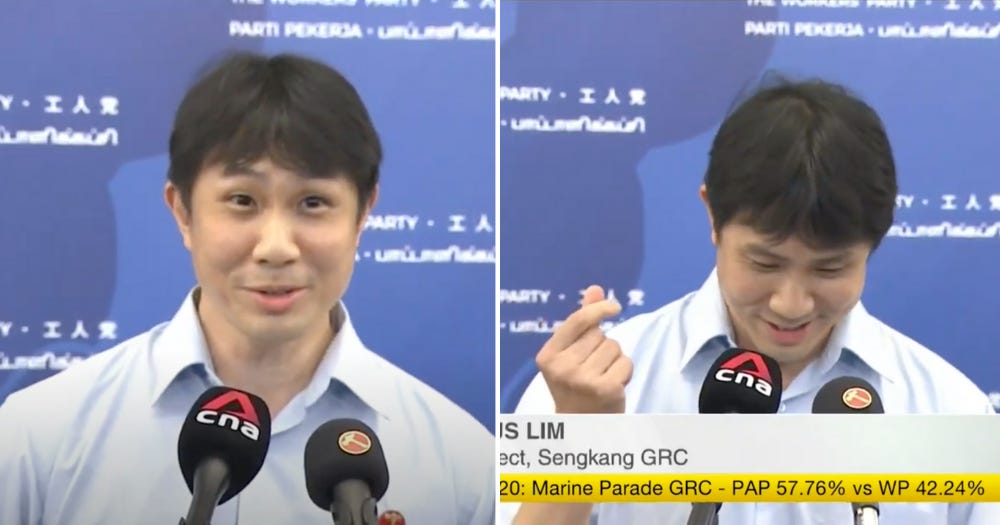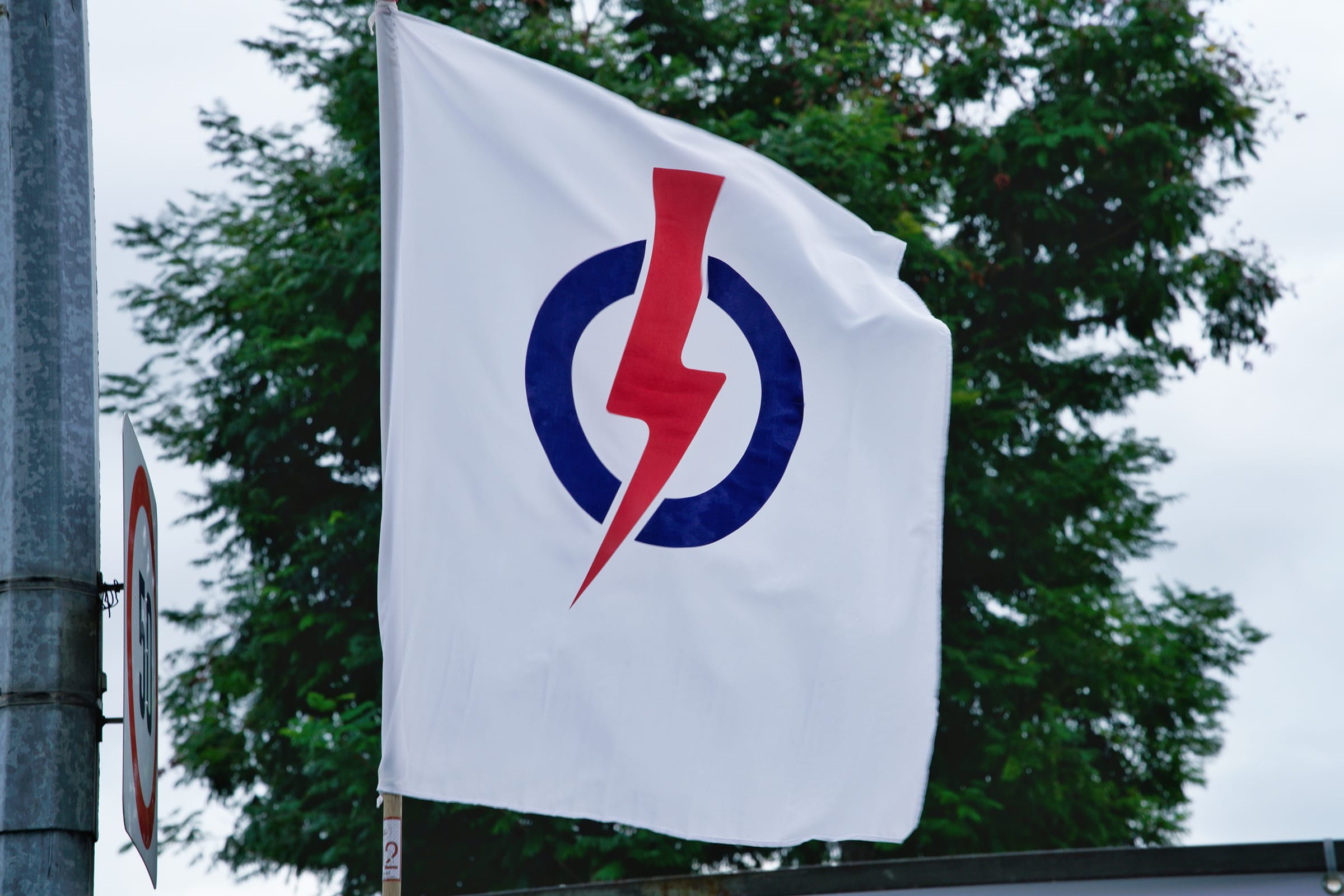A few days ago, Today published an analysis of PAP’s moves in the constituencies controlled by the Workers’ Party - essentially scaling back its operations there and encouraging residents to address their questions and report issues to the elected opposition MPs first.

Over the years, PAP has typically stayed active on the ground, which kept it close to the people in the hope of winning back their support.
On the other hand, however, it has created a situation which has clearly benefitted the rival WP, as the constituents had effectively two parties serving them. Why not vote for the opposition, then, if PAP is still working hard?
This has, unsurprisingly, been a point of contention within the PAP, and it seems that the sceptics have gained the upper hand for the time being, as the party wants to cede more responsibility to WP.
Critics of active engagement point out that PAP is effectively helping WP run its constituencies, which the opposition party can claim credit for. If WP is burdened with more responsibilities, it may soon crack under their heft and fail to deliver to the voters, which might erode its popularity in the future.
At the same time, however, reducing PAP’s involvement may seem like the party - in charge of the entire country, no less - is abandoning parts of it (some may even suggest it is “punishing“ them), which may alienate even its current voters there.
Will they feel greater sympathy for PAP candidates returning for their support after a few years of absence?
The decision of what to do and how much to engage or disengage is certainly not easy.
However, it is also clear that whatever has been done so far isn’t producing the desired results - Aljunied and Hougang remain with the Workers’ Party and were joined last year by Sengkang, while WP is slowly gaining greater national momentum.
Logically speaking, it makes sense to cede all responsibility to WP and see how its members can swim when the water is really deep - particularly as the party’s cadres are not the strongest and even its political frontrunners represent a rather short bench.
Their problems running AHTC - which may end in convictions after all appeal routes are exhausted - certainly give credence to the suspicion that for their nice public image and media appeal, WP’s MPs are likely to fail in day-to-day management of their towns if placed under greater pressure.
However…
…does it really matter? After all - PAP isn’t losing on competencies or accomplishments.
On the basis of both ideas and tangible achievements there is no reason to vote for any opposition party in Singapore.
Compared to the PAP their members are subpar across the board, particularly in the field of management. And when they finally won control over some districts, they landed themselves in court.
If it depended on the results delivered, PAP should keep coasting through one election after another.
Sadly, however, politics is more often than not driven by emotions rather than reason.
Bread and butter issues are very important, of course, but people don’t really know, understand or even care how certain services are provided.
Secondly, they will often blame negative outcomes on the dominant party even in the face of overwhelming evidence of the culpability of the opposition they voted for (“underdog bias“).
Finally, many of them are emotionally invested in supporting the opposition and simple facts and figures are nowhere near enough to convince them to abandon those they *feel* good about.
Cognitive dissonance is not easily combated, not even with undeniable facts.
After all, the AHTC case has failed to dent WP’s popularity, and the party ended up scoring record highs in the 2020 GE.

That’s why it actually may not matter how engaged PAP is in the opposition wards because positive developments will be ascribed to WP, and negative will be seen as PAP punishing the opposition and its voters - even if it isn’t true.
This is the main problem that the ruling party has to grapple with - the irrationality of support for its rivals.
If WP can get away with mismanaging tens of millions of dollars, will some overflowing bins, dirty void decks and a few sheltered walkways less make a dent in its popularity?
Even if it handles fewer complaints and more people have to wait longer to get a response to their inquiries, does that really directly affect tens of thousands of voters deriving a sense of moral superiority from simply opposing the PAP?
Aiming to claw back the constituencies by dialling down party activity, there is banking on the hope that the difference in management is going to be so huge as to be noticeable enough, painful enough and unequivocally the fault of the WP.
That’s A LOT to hope for…
The curse of success
In more than one way, PAP is a victim of its own success.
Firstly, the most successful opposition party is actually popular on the basis of… being as close to PAP as possible without actually being it.
Secondly, the city is so well managed and maintained that it would take years for any lapses in on-the-ground management to manifest themselves. And even then many people are likely to accuse the ruling party of sabotaging opposition wards rather than hold their own representatives accountable.
This is why what may, logically, seem easy is so hard to execute in real life and is a difficult issue for the PAP to grapple with.
Sure, reducing local activity and shifting the burden on the Workers’ Party may end up providing more factual arguments for its inability to provide public services competently - but unless the results are downright catastrophic, it may not be enough to erode its popularity, which is based on largely irrational sympathy, that produces emotional reward for all of its voters.
Support for the political opposition in Singapore is akin to a teenage rebellion against one’s parents. It’s not about being better but being different.

It doesn’t matter how ridiculous you may look and how much harm it may cause you - it brings satisfaction only on the basis of going against the established rules (and common sense), even if it’s a road to self-destruction (or, at the very least, embarrassment).
Fortunately, this phase typically fades among the young, most of whom ultimately “grow up“.
It has also been observable in political preferences - younger voters tend to hold more left-wing beliefs, which change as they grow older (presumably due to mounting responsibilities, work, family, and children).
That said, we’re in the midst of a civilizational shift that sees more people living Peter Pan lives, having fewer children, or even failing to marry for a lot longer than past generations (if not entirely at all).
At the same time, growing prosperity has made more of them a lot more comfortable and less worried about their material future. This is pushing the middle class to seek social status by embracing morally fulfilling causes (having the latest phone, car, or a nice apartment no longer cuts it) - and supporting a certain model of politicians.
Hence, for example, the explosive popularity of Jamus Lim in Singapore, on the basis of one media appearance, has clearly swayed enough people in Sengkang to put the GRC in WP’s hands.

In the grand scheme of things trying to make WP work harder for its support is, of course, perfectly reasonable. But it may not be enough to sway the voters if it is not coupled with a charm offensive that could compete with its progressive, digital age appeal.
It would take a stumble of really huge proportions - and one that is not easily portrayed as a political attack - to hurt the Workers’ Party enough to see it tumble in the polls.
So, while the change in approach to handling opposition wards is probably overdue (given the GE results), it’s unlikely to make enough of a dent on its own.





